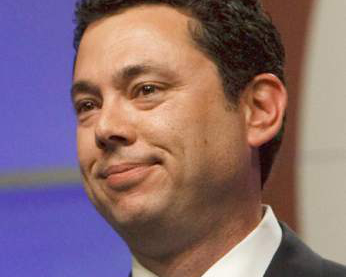This is an archived article that was published on sltrib.com in 2015, and information in the article may be outdated. It is provided only for personal research purposes and may not be reprinted.
Washington • Should U.S. Rep. Jason Chaffetz win his long-shot bid for speaker, the Utah Republican would inherit likely the most difficult job in Washington: managing a deeply divided chamber, with an even more deeply divided GOP caucus and an ever-increasing tally of hot-button issues, potential crisis and, oh, yeah, a voting base of conservatives that shuns compromise.
"I'd rather stick a fork in my eye than have that job," joked Rep. John Ratcliffe, R-Texas, as he waited Tuesday in the ornate Speaker's Lobby adorned with portraits of speakers past.
Indeed, when Speaker John Boehner announced he was resigning the top post and his seat late last month, he strolled into the room singing.
"Mr. Speaker, you seemed very relieved," a reporter noted.
"Zippidy do-da, zippidy day," Boehner responded in tune.
And why shouldn't Boehner sing? As he exits, the House faces a vote on increasing the nation's borrowing authority — which conservatives oppose — as well as another budget showdown looming in December. Efforts to jettison the Affordable Care Act, or severely wound it, are ongoing, as well as a big push to cut funding for Planned Parenthood.
Even the speaker's race shows the break in the House GOP as Chaffetz, a four-term congressman, challenges the heir apparent, Majority Leader Kevin McCarthy of California, who Boehner noted would be an "excellent" replacement.
"The speaker's job has always been a prestigious one, but carries with it tremendous responsibilities filled with thankless tasks that most elected officials and the general public either aren't aware of or don't appreciate," notes GOP consultant Ron Bonjean, who served as a communication director for House leaders in the past. "The growing chorus against leadership doesn't make it any easier for a person to sustain that level of pressure that are often surrounded with no-win scenarios."
Chaffetz says he gets that.
"It is, in many ways, an impossible job," he acknowledged this week.
The House GOP caucus meets on Thursday to pick its nominee for speaker, and McCarthy is a heavy favorite. But Chaffetz still argues that when the full House votes on Oct. 29, McCarthy won't be able to pull a majority of the members – 218 if the full House is present – because some 50 of the 247 Republicans will not vote for McCarthy.
Chaffetz's game plan is to support Thursday's nominee but still offer himself as an alternative on Oct. 29 if McCarthy fails to marshal enough support.
Chaffetz, McCarthy and Rep. Daniel Webster, a Florida Republican, round out the candidates for speaker. The trio was set to meet Tuesday night with some 70 members as part of the Conservative Opportunity Society, chaired by Rep. Steve King of Iowa, one of the leaders of the House's far-right contingent.
Chaffetz, in his pitch to members asking for support, says rank-and-file members will have a voice if he's speaker and that committees will again be entrusted to draft, amend and pass legislation that will go to the floor for a vote. In recent years, the House has taken up hodge-podge bills and omnibus legislation rather than advancing measures that went through the committee process.
"It should not be a top-down approach," Chaffetz told reporters this week. He added that unlike the current House, he would permit legislation to reach the floor even in cases where the outcome was uncertain.
"As speaker, I don't expect that every bill that comes to the floor will pass," Chaffetz said. "We shouldn't expect every bill to be pre-baked."
That may be wishful thinking.
Then-House Speaker Dennis Hastert established a rule during his 1990s reign when he would only allow votes on legislation that a majority of Republicans supported. House leaders have stuck to that rule for the most part ever since.
Meanwhile, Chaffetz shouldn't expect help from Democrats should either he or McCarthy fail to get their own caucus to put them over the threshold of votes needed to be speaker.
House Minority Whip Steny Hoyer told reporters Tuesday that the GOP was on its own to elect a speaker and there wasn't a role for Democrats to play. The 188 Democrats in the chamber are likely to vote for Minority Leader Nancy Pelosi.
But Hoyer stressed that the new speaker would find himself in a more difficult spot than even Boehner did during his tenure, mainly because the party's right flank rejects deal-making.
"Whoever is the speaker will be making a very significant mistake for the country if that leader is beholden to a very small group of his own caucus — or her own caucus — to the detriment of the country," Hoyer said, according to The Hill. "So, you asked me if I'm concerned, the answer is yes."
Then again, even if the job is tough and the risks large, Chaffetz, McCarthy and Webster are working hard to earn the spot.
"There seems to be an adequate level of interest," noted Rep. Adrian Smith, R-Neb.
The question for Chaffetz is not whether he wants it, but whether he has a shot.



